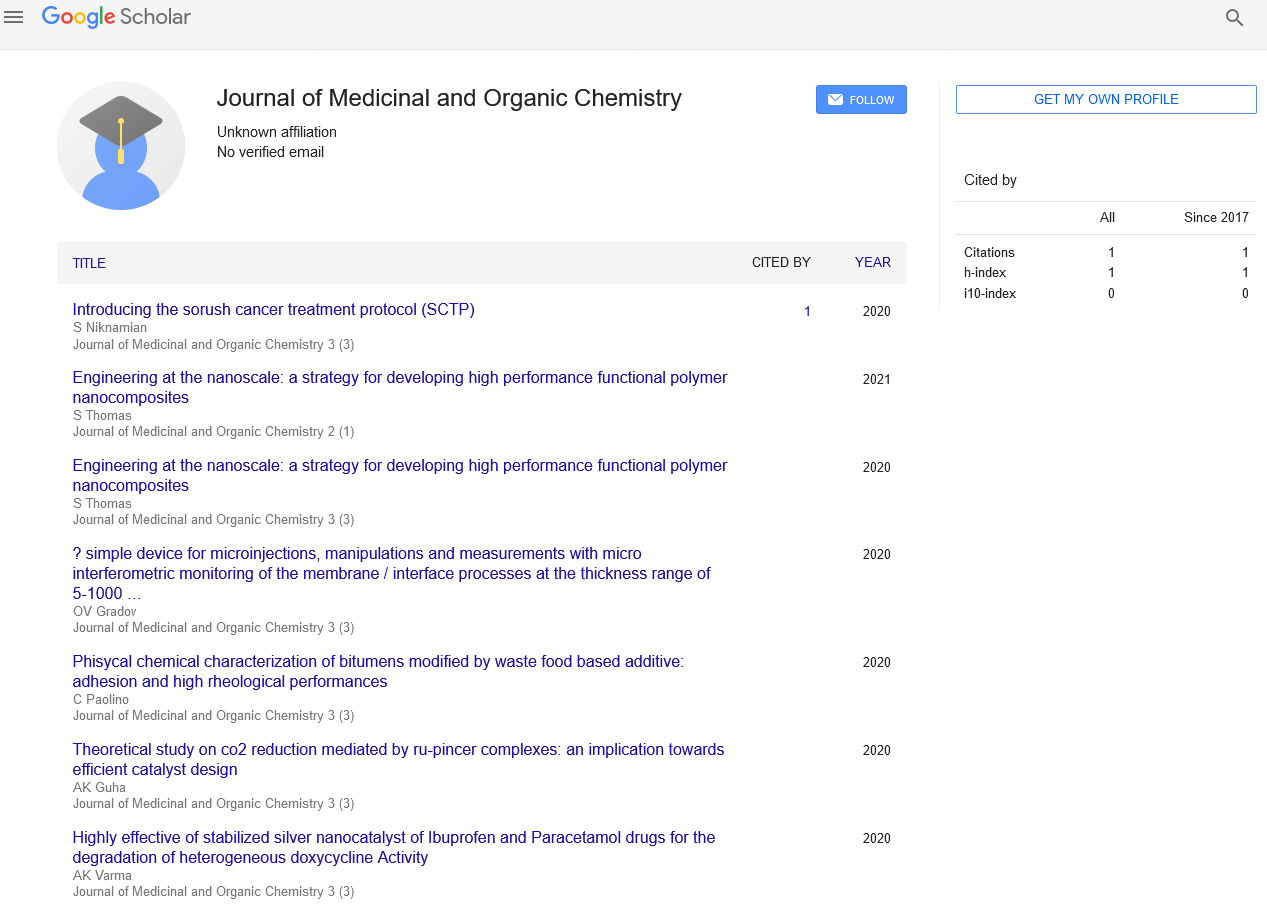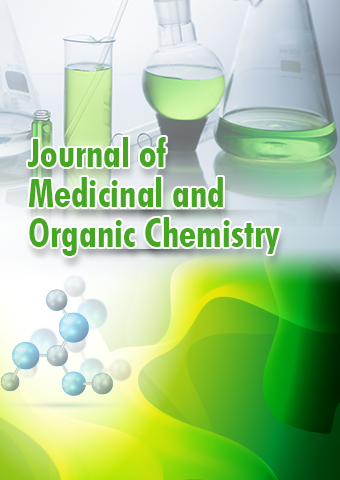Perspective - Journal of Medicinal and Organic Chemistry (2024) Volume 7, Issue 1
Decoding the Blueprint of Life: Navigating the Complexities of Genetics
- Corresponding Author:
- Liang Ma
Department of Biological Science,
University of Uquanoi,
Beijing,
China
E-mail: ML1402@zju.edu.cn
Received: 25-Jan-2024, Manuscript No. jmoc-24-126285; Editor assigned: 30-Jan-2024, PreQC No. jmoc-24-126285 (PQ); Reviewed: 13-Feb-2024, QC No. jmoc-24-126285; Revised: 22-Feb-2024, Manuscript No. jmoc-24-126285 (R); Published: 29-Feb-2024, DOI: 10.37532/jmoc.2024.7(1).161-162
Introduction
Genetics, the study of heredity and variation in living organisms, is a captivating realm where the intricacies of life’s blueprint are unveiled. From the inheritance of physical traits to the underlying mechanisms of disease susceptibility, genetics permeates every aspect of our existence. In this illuminating journey, we delve into the fundamental principles, groundbreaking discoveries and promising applications shaping the landscape of genetics.
Description
Fundamental principles
At the heart of genetics lies the concept of DNA (Deoxyribonucleic Acid), the molecule carrying genetic instructions for the development, functioning, growth and reproduction of all known organisms. DNA is composed of four nucleotide bases Adenine (A), Thymine (T), Cytosine (C) and Guanine (G) arranged in a double helix structure. The sequence of these bases encodes the genetic information essential for cellular processes and organismal traits.
Inheritance patterns
The inheritance of traits follows established patterns governed by Mendelian principles, elucidated by the pioneering work of Gregor Mendel in the 19th century. Mendel’s laws of segregation and independent assortment govern the transmission of alleles (alternative forms of a gene) from parents to offspring, laying the groundwork for understanding inheritance patterns of dominant, recessive and codominant traits.
Genetic variation
Genetic variation, the diversity of alleles within a population, arises through mechanisms such as mutation, recombination and gene flow. Mutations, spontaneous alterations in DNA sequence, introduce novel genetic variants that drive evolutionary change and contribute to phenotypic diversity. Recombination, occurring during meiosis, shuffles genetic material between homologous chromosomes, generating genetic diversity among offspring.
Genetics and disease
Genetic factors play a pivotal role in the etiology of numerous diseases, ranging from monogenic disorders caused by mutations in a single gene to complex multifactorial conditions influenced by multiple genetic and environmental factors. Advances in genomic sequencing technologies have revolutionized the field of medical genetics, enabling the identification of disease-associated genes and the development of targeted therapies tailored to individuals’ genetic profiles.
Genomic medicine
Genomic medicine, an emerging field at the intersection of genetics and healthcare, harnesses genomic data to inform personalized approaches to disease prevention, diagnosis and treatment. From pharmacogenomics, which optimizes drug efficacy and safety based on individual genetic variability, to precision oncology, which tailor’s cancer therapies to tumor-specific genetic alterations, genomic medicine holds promise for revolutionizing patient care across diverse medical specialties.
Ethical and social implications
The rapid pace of genomic advancements raises profound ethical and social considerations regarding genetic testing, privacy and genetic discrimination. Issues surrounding informed consent, data security and equitable access to genetic services underscore the importance of robust ethical frameworks and policy guidelines to safeguard individuals’ rights and promote ethical practice in genetics and genomics.
Genetic counseling
Genetic counseling serves as a cornerstone of patient-centered care in genetics, providing individuals and families with information, support and guidance regarding genetic risks, testing options and implications for health and reproduction. Genetic counselors, trained healthcare professionals with expertise in genetics and counseling, facilitate informed decisionmaking and empower individuals to navigate the complexities of genetic information.
Future directions
The future of genetics holds immense promise, propelled by technological innovations, interdisciplinary collaborations and burgeoning research endeavors. Advancements in genome editing technologies, such as CRISPR-Cas9, offer unprecedented opportunities for precise manipulation of genetic material, potentially curing genetic diseases and engineering desirable traits. Furthermore, large-scale genomic initiatives, such as the human genome project and the precision medicine initiative, continue to unravel the complexities of human genetics and pave the way for transformative discoveries in health and disease.
Conclusion
Genetics stands at the forefront of scientific inquiry, unlocking the mysteries of heredity, evolution and disease. By unraveling the intricacies of DNA and deciphering its profound implications for human health and society, we embark on a journey of discovery and innovation with far-reaching implications for future generations. As we navigate the complexities of genetics, let us embrace the profound potential of genomic knowledge to illuminate the path towards a healthier, more equitable and genetically informed world.

